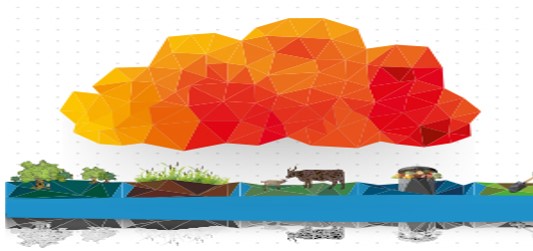Investing in sustainable food systems and greener agribusiness

“Climate is changing. Food and agriculture must too” was the overarching message of World Food Day 2016. This year’s event at FAO headquarters in Rome brought together government representatives and high-level experts to examine emerging issues related to climate change and food security, and explore ways to make agriculture and food systems more resilient, productive and sustainable for future generations.
FAO’s Investment Centre has worked closely with the European Bank for Reconstruction and Development (EBRD) to develop effective regulations that support sustainable food production and promote better practices within the private sector, especially on environmental sustainability, safety and hygiene.
The two organizations expanded their cooperation in 2013 to address sustainability, increasing their attention to climate adaptation and mitigation solutions. Their extended portfolio aims to help reduce agriculture’s impact on climate change by fostering investments that encourage greener and more sustainable food value chains.
“The Bank has deployed a number of financial instruments in the last number of years to help agribusiness supply chains become more efficient. We make loans, we make equity investments in companies for this purpose. We have invested about 1.5 billion EUR in this area –” said Terry McCallion, EBRD’s Head of Energy and Efficiency and Climate Change, who spoke further on the dynamics of this teamwork during the World Food Day celebrations.
The Investment Centre provides a policy dimension to EBRD investment projects, introducing institutional frameworks and providing technical advice to help determine the strategic direction of investments.
One such project is the Finance and Technology Transfer Centre for Climate Change (FINTECC), which advises on innovative resource efficiency technologies, and helps spread their use through grants, policy dialogue and technical cooperation. The Investment Centre and the EBRD developed a step-by-step methodology that can help countries assess market penetration for diverse climate technologies and boost the transfer of practices in the agriculture sector.
FINTECC is able to identify the best climate technology options per case to promote investment in a more efficient use of water, biomass, land and energy in early transition countries and Southern and Eastern Mediterranean countries. By highlighting relevant policies, governments can improve climate practices within their countries.
The Investment Centre and the EBRD are implementing FINTECC in Morocco to facilitate green food value chains across the agrifood sector, with tools that identify levels of greenhouse gas emissions from both farm and food processing activities. Through innovative climate technologies, such as conservation agriculture and solar powered pumping, industry players will be able to take steps toward efficient water use, improved livelihoods for the rural poor and sustainable development across the agrifood sector. Results from a recent evaluation of the project will be presented during the COP22 climate discussions in Marrakesh this November.
FAO’s Investment Centre and the EBRD continue to guide governments and financing institutions on where and how to prioritize investment in the adoption of greener practices for a more sustainable future.
